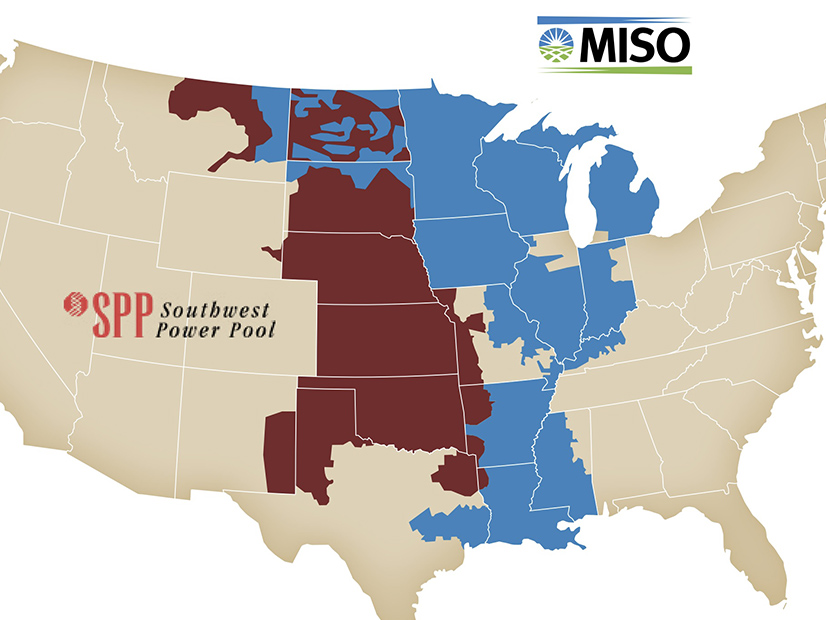SPP staff last week added some additional color to their joint proposal with MISO to replace their affected systems study process with interregional transmission analyses similar to their joint targeted interconnection queue (JTIQ) initiative.
The RTOs told stakeholders last month that they intend to create a “JTIQ-affected system zone” where they identify new transmission facilities near their seams that are likely to be affected by their neighbor’s interconnection requests. Staffs said the process will enable them to take advantage of cost-sharing opportunities between GI customers and load. (See SPP, MISO Propose Scrapping Affected System Studies.)
Neil Robertson, SPP’s coordinator of system planning, told the Seams Advisory Group June 15 that the process will incorporate narrower affected system analyses into the regional processes.
“What we’re basically proposing to do is along with this forward-looking study is to look for larger, more regional interregional solutions,” Robertson said. “There is going to be an additional affected systems study performed under a much narrower scope from what it is today. The key thing about this is that it’s an additional layer we’ve incorporated into the regional generation interconnection processes … so the regional studies will provide coverage for the adjacent system along the seam.”
 MISO and SPP seams | MISO and SPP
MISO and SPP seams | MISO and SPP
The grid operators say the JTIQ framework will identify and mitigate existing and future affected system constraints. The biennial process will assign a predetermined dollar/MW charge to applicable interconnection customers based on their zonal impact. Staff said that will eliminate individual developers depending on higher-queued interconnection customers’ upgrades to get their own projects online.
“You won’t find many fans of the current process. I wouldn’t think efficiency and timeliness describe the current process,” Robertson said. “We’re providing both cost certainty and shorter timelines than GI customers take to get through the current process.”
Under the JTIQ process, GI customers would know the affected system cost earlier in the process and eliminate unknown affected system network upgrades, Robertson said. He said the process builds on FERC’s proposal for interconnection zones in its proposed transmission-planning rulemaking (RM21-17).
Robertson said the RTO staffs are “working behind the scenes” to gain stakeholder support for the proposal, but initial reaction on the SPP side has been positive.
“At a high level, we think it’s a very creative process,” ITC Holdings’ Raju Brahmandhabheri said before thanking SPP for “coming up with this idea.”
American Clean Power Association’s Daniel Hall said his organization is very supportive of the concept.
“As everyone knows, the study process has been a major impediment to moving through the queue in both RTOs. This effort to try and replace that process with something like the JTIQ is potentially a game changer,” he said. “We appreciate the effort and the creativity.”
$12.4M in M2M Settlements for SPP
SPP began its eighth year of market-to-market (M2M) transactions with MISO by accruing $12.4 million in settlements from its seams neighbor in March, pushing the total amount in its favor to $291.3 million. The process began in March 2015.
It was the 13th straight month M2M transactions have settled in SPP’s favor, and the 28th time in the last 30 months. The two grid operators exchange settlements for redispatch based on the non-monitoring RTO’s market flow in relation to firm-flow entitlements.
Permanent and temporary flowgates were binding for 1,828 hours in March.
Staff Secretary Savoy Promoted
The meeting may have been the last for SAG’s staff secretary, Clint Savoy. He was promoted to manager of interregional strategy and engagement, a new position, effective June 16. In his new position, Savoy will be leading the interregional relations team in ensuring SPP completes its seams-related goals under the RTO’s strategic plan.
Savoy said SPP plans to backfill his position while it looks for a permanent replacement.
“So, you guys are still stuck with me for a little,” he told the group.




